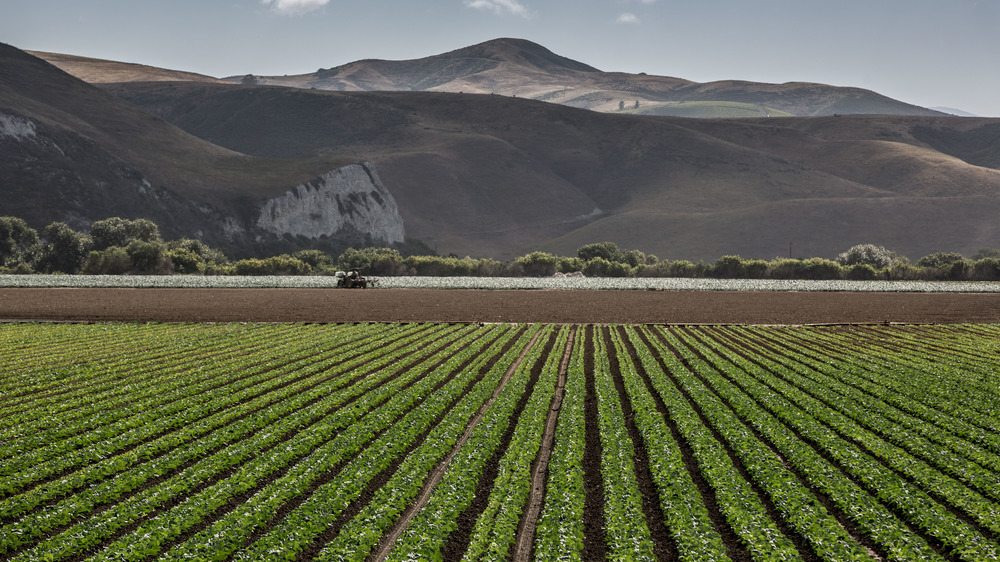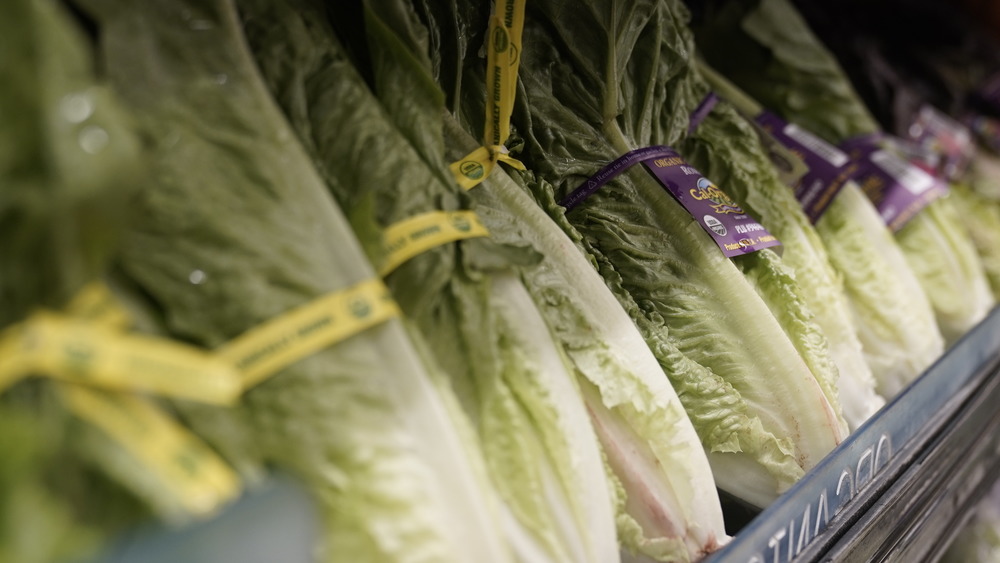How Global Warming Could Make Food Less Safe To Eat
Climate change is a complex beast. Sometimes people refer to it as "global warming" — an overall increase in temperatures around the planet that will change living conditions for humans and all other living things, in ways we can't foresee. But warming is only part of the story when it comes to climate change. Scientists say that severe cold weather in normally warm parts of the world — like February's deep freeze in Texas — is becoming more frequent because of climate change (via Earth.Org). Other changes are also happening that go beyond just global warming.
For example, droughts are becoming more frequent around the world, while at the same time the U.S. is getting more frequent severe thunderstorms. All these changes are happening within a complex web of interactions that's hard for scientists to pin down. But it's important that they develop a clear picture of what climate change will bring because it could have a major impact on human health. It could even affect the safety of our food supply.
Some of the worst cases of foodborne illness in recent years have come from a source that seems innocent enough: romaine lettuce and other leafy greens. In 2018, romaine from Arizona contaminated with E. coli sickened more than 200 people, including 96 who were hospitalized and five who died (via Eater). While most cases aren't that big, the CDC recorded 51 outbreaks of food sickness caused by leafy greens from 2014 to 2018.
Global warming could lead to more illnesses caused by contaminated lettuce
Scientists say global warming could make leafy greens even riskier. The lettuce in the 2018 case, was contaminated by water from an irrigation canal that ran next to a cattle feedlot (via Eater). That canal appeared to be the link between cow poop on the feedlot and lettuce in nearby fields. This particular crop may have been especially susceptible to E. coli contamination because the leaves had been damaged by a February freeze — something they don't normally see in the lettuce-growing parts of Arizona.
A climate that brings both more frequent droughts and more heavy rains can also increase the risk of E. coli contamination in leafy greens. During an extended dry period, fecal matter will pile up on farm fields until the next heavy rain washes it all into nearby ditches or irrigation canals. Jay Graham, an environmental health sciences professor at Cal Berkeley, told Eater that he predicts the weather patterns emerging through climate change will make foodborne illnesses even more common, especially in countries outside the U.S. that are only now ramping up agriculture to an industrial scale — sometimes without strict safety regulations, like those in effect in the U.S.
Consumers can take steps to avoid food poisoning. The CDC recommends washing your hands thoroughly, then rubbing the leaves with your hands under running water to wash the lettuce. Packaged greens labeled "ready to eat" or "no washing necessary" should be fine.

